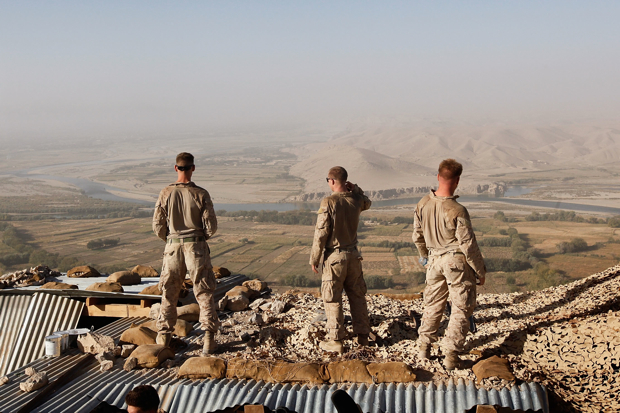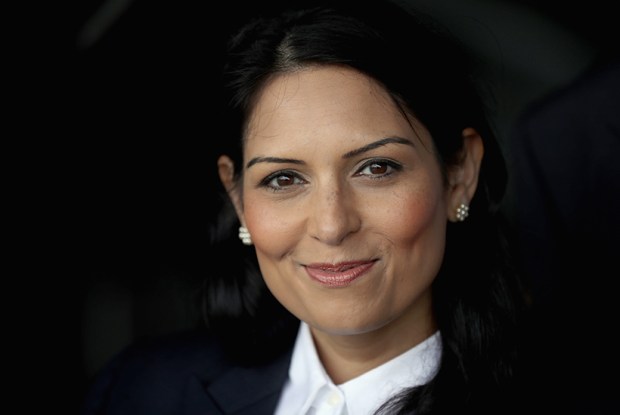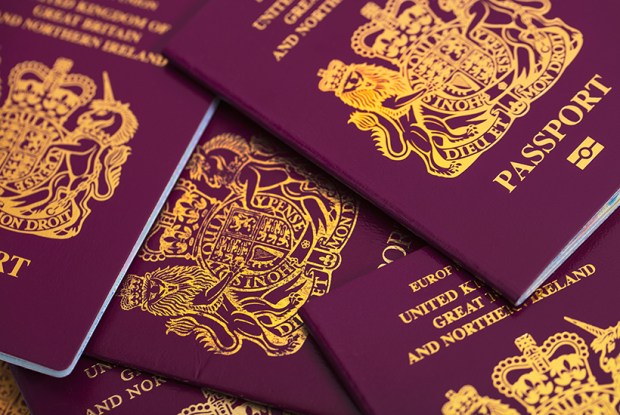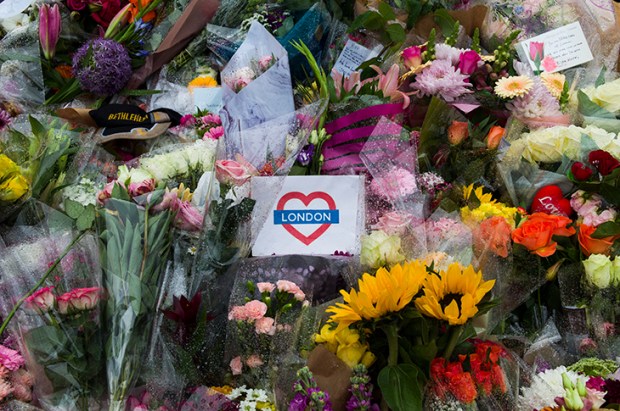The ghost people, the letter people. The ones we hear about in court but never call by their real name; instead, Baby P and Girl A. And now Marine A. They remain hidden from us for reasons which are, one supposes, rational and sensible, but somehow this non-naming magnifies our shame or abhorrence at whatever has befallen them, or what they have done. It must be bad if we’re to strip them of their identities, no? Eventually they shuffle off the stage, after some sort of justice has been dispensed, still in some cases anonymous, shrouded.
Shuffle off, indeed. Marine A dispatched a Taleban insurgent with a bullet to the chest and a quote from Shakespeare which he had usefully expanded and modernised: ‘Shuffle off this mortal coil, you cunt,’ he said as he pulled the trigger. Marine A’s job was to dispatch Taleban insurgents with or without recourse to Hamlet; but not, of course, when the insurgent is a prisoner of war, which this one was. If he had been shot in the chest by Marine A in the battlefield, then that’s a different thing, we are all agreed. But not when he is shot away from the battlefield in that other thing, ‘cold blood’. Then, instead, it’s an act of savagery and for a moment, back home, we are no longer able easily to differentiate ourselves from the enemy, people whom we are habituated to see as medieval savages, with some justification.
This, after all, is why we are in Afghanistan: to civilise these people, in effect. Immediately after the murder the soldier issued a plea of mitigation to someone — his comrades, the dead man, the helicopter circling overhead or a still higher authority: ‘It’s nothing you wouldn’t do to us.’
As an excuse, an alibi, it could scarcely be worse: that’s the point, soldier. That’s precisely why we don’t do it. Or don’t let on that we do it, at least. Because in watching the clip of the insurgent being killed, you do get the feeling that this action might not have been a singularity; there was a fairly casual discussion with his two colleagues (Marines B and C, subsequently cleared of murder) about what should happen. There was no screaming psychotic rage or other demand for vengeance on behalf of Marine A. He did not go berserk, like you see GIs doing just before they do something deranged in American films about how horribly brutalising the war in Vietnam was. Quite the reverse. Nobody seemed terribly shocked or worried that he’d killed the jihadist, or remonstrated with him about his behaviour in even the mildest tones: ‘Hang on, that’s a bit rich, old boy…’. Instead the enemy combatant was sent shuffling from his mortal coil in a rather matter-of-fact manner and with the simple injunction, from Marine A to his fellow soldiers, not to tell anyone about it.
And nor did they tell anyone about it. We only know about all this, and Marine A was only brought to justice, because of the chance find of the video on some soldier’s laptop. More hardcore porn, then, begging to be discovered. But maybe I’m wrong and this was a one-off and the rest of our military behaves towards captured soldiers with the indulgence and sensitivity of a parole officer dealing with a slightly truculent ‘client’.
Our most senior and gilded soldiers have demanded leniency for Marine A. Of course they have. Colonel Richard Kemp suggested that this sort of stuff, this murdering of prisoners, is not comparable to ‘cold-blooded murder back home’. Major General Julian Thompson has said much the same thing. Being in combat ‘can warp and twist the behaviour of otherwise decent human beings’.
Yes, I’m sure it can. Drugs can also warp human beings, and alcohol, and sexual -jealousy and mental illness, but we do not usually accept these as a plea of mitigation. But the unspoken belief at the back of these entreaties is this: we cannot fight a war under these sorts of conditions and strictures. We cannot fight a war when the death of every soldier as the consequence of some barbarian’s IED is treated to a full parade back home and subsequent litigation from the bereaved about the care he was given by his employers, questions in the House of Commons and so on. We cannot fight a proper war when our servicemen have to comply with Section 2 of the Human Rights Act and behave, when they are not being blown up, like social workers.
And it is true too that in the last 15 years, British soldiers have been sent to fight in more wars — some of them absolutely nothing to do with the welfare of Britain, others the consequence of misplaced liberal evangelism from our rulers — than in the previous 100 years combined. And far more soldiers have been hauled before the courts martial for not abiding by the standards of civilised behaviour which we would expect from, say, Guardian leader-writers or members of the clergy.
The pleas for leniency are effectively saying that in warfare, anything goes, and if you don’t like that then don’t send us to fight these wars, these unwinnable wars. I just hope that the trial and sentencing of Marine A registers itself on the conscience of our politicians and that they think a little more keenly before sanctioning the next military adventure.
Got something to add? Join the discussion and comment below.
Get 10 issues for just $10
Subscribe to The Spectator Australia today for the next 10 magazine issues, plus full online access, for just $10.
You might disagree with half of it, but you’ll enjoy reading all of it. Try your first month for free, then just $2 a week for the remainder of your first year.















Comments
Don't miss out
Join the conversation with other Spectator Australia readers. Subscribe to leave a comment.
SUBSCRIBEAlready a subscriber? Log in